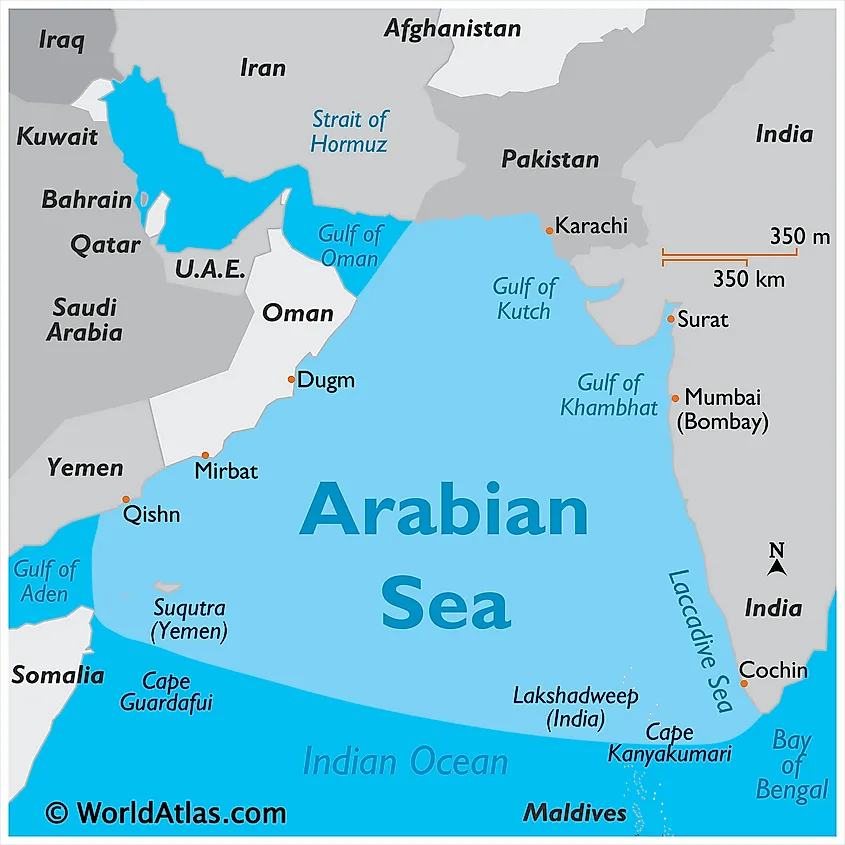
- The geographical proximity to the Maldives and Sri Lanka heightens the risk of political turmoil affecting Lakshadweep.
- The growing Chinese presence in the Indian Ocean Region and persistent piracy issues add to the potential security concerns.
- A thoughtful and comprehensive defence-centric strategy could be the key to addressing the multifaceted challenges faced by this picturesque archipelago.
Lakshadweep, a stunning cluster of 36 atolls known for its biodiversity, found itself in the spotlight amid PM Modi’s recent visit to this strategic island. The archipelago, located 400 km west of Kerala, comprises 36 islands with only 10 inhabited. Covering a mere 32 sq km of land, it boasts a vast Exclusive Economic Zone (EEZ) of 400,000 sq km. With a 96% Muslim population culturally linked to Kerala, Lakshadweep faces potential discontent, especially as radical groups like the Popular Front of India have made inroads.
The geographical proximity to the Maldives and Sri Lanka heightens the risk of political turmoil affecting Lakshadweep. The growing Chinese presence in the Indian Ocean and persistent piracy issues add to the potential security concerns. Last year, INS Suvarna intercepted a Sri Lankan boat laden with heroin, emphasizing the need for strategic measures.
While the government aims to develop tourism, there’s a latent security threat. Locals and the government aren’t exaggerating the situation, making it imperative to strike a delicate balance. Lakshadweep’s vulnerability demands attention, considering it could become a hotspot for criminal activities and anti-national elements.
The existing defence infrastructure has been bolstered, with coast guard stations, a naval base, and plans for a fully operational navy base. However, these efforts need to be more consistent with the proposed tourism development. A dedicated defence approach may be more suitable to address security and operational secrecy concerns.
Transforming Lakshadweep into a dedicated defence island, except for inhabited regions, aligns with global practices. Examples like Shoal Bay in Australia and India’s plan for a military base in Agalega near Mauritius demonstrate the effectiveness of such dedicated facilities. Lakshadweep’s strategic location can be a pivotal point in India’s efforts to outsmart China in the Indian Ocean.
Moreover, a defence-focused approach could address local challenges effectively. For instance, the marshy jungle regions could serve as ideal grounds for jungle warfare training, beneficial for handling threats on the mainland, particularly from Naxalite and militant groups in the Northeast.
Local Perspectives on Tourism in Lakshadweep
The local resistance to Lakshadweep turning into a tourism and strategic hotspot can stem from a range of concerns. Firstly, there might be apprehensions about preserving the distinct cultural identity of the islands, with fears that increased tourism and strategic developments could lead to a dilution of local traditions and practices.
Environmental impact is another significant worry, as heightened tourist activities and strategic initiatives could potentially harm the fragile ecosystems of the islands. Locals have expressed concerns about the long-term consequences on their natural surroundings, which play a vital role in their livelihoods. Furthermore, the prospect of an influx of non-islanders associated with tourism and strategic interests may raise fears of demographic shifts and strained resources, impacting the closely-knit island communities. The locals fear that changes in the economic landscape and social fabric might be perceived as a threat to the traditional way of life.
In the case of strategic importance, the heightened military presence may cause security concerns among the residents. Worries about potential conflicts, loss of autonomy, and changes in the islands’ strategic status are areas of concern for the local residents.
In conclusion, balancing development, security, and cultural preservation is crucial for Lakshadweep’s future. A thoughtful and comprehensive defence-centric strategy would be the key to addressing the multifaceted challenges faced by this picturesque archipelago.
(Srijan Kumar is currently pursuing a PhD in South Asian studies from Delhi University. He is a writer and a columnist for various digital media houses. Opinions expressed are the author’s own)
